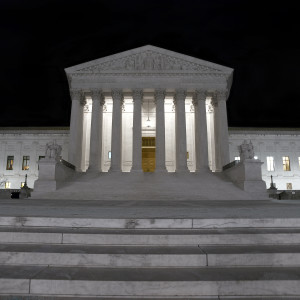With Justice Anthony Kennedy’s retirement, President Trump now has the opportunity to appoint a second Supreme Court justice, and given that justices are confirmed for life, this opportunity is almost certain to be his most enduring legacy.
Just Wednesday, Kennedy’s retirement sent shock waves through the legal and political community. But for close court observers, that decision was not unexpected. In the days leading up to his retirement, Justice Kennedy time and again pinned pointed concurrences explaining his view of the law — leaving instructions, as it were, for his successor.
Expected or not, the effect of Kennedy’s retirement cannot be overstated. His decision to step down will affect the way the American people are governed for the next half century or more.
And the president has committed to appointing judges and justices who believe in the Constitution and the rule of law. The twin doctrines of originalism and textualism help to constrain unelected judges to their proper constitutional role. The job of a federal judge is not to rewrite congressional statutes — imposing their own view of what is best above the representative branches. Nor is it to update the Constitution — making legislative change and innovation impossible.
As Chief Justice John Marshall famously wrote in Marbury v. Madison, the Framers gave us a written Constitution. The structural divisions of power in that document were intended to divide, and thus limit, the powers of the federal government. And all to one end: the preservation of individual liberty and dignity. Along with Montesquieu, the Founders recognized that, with separated spheres of authority, government must act in concert in order to curtail personal liberty.
The job of the judiciary should be simple. Article III of the Constitution requires judges to decide the cases and controversies that come before them. Period. Unlike the common law courts of yore, Article III courts do not possess (contrary to common practice), general authority to “make” the law. That power resides firmly in the hands of the representative branches, Congress, and upon presentment of legislation, the president.
As the late-Justice Antonin Scalia wrote, all of this matters immensely. A judge’s view of her role under the Constitution determines who governs us. Is it our representative branches or the majority of nine unelected lawyers on the Supreme Court? When the court goes beyond its role, it robs us of the freedom to influence our legislators; it robs us of the “freedom to govern ourselves.”
The president has the opportunity now to appoint a second justice who will secure this freedom for our children. A justice who believes firmly in originalism and textualism.
To take just one issue of our time, several of Kennedy’s parting concurrences focused on his favorite amendment, the First.
And for good reason. The First Amendment is under assault in America. Just this term, liberals have argued that a state (California) may force pro-life pregnancy care centers to advertise state-funded abortions. They have supported the Colorado Human Rights Commissioner who dismissed faith-based objections as nothing more than a “despicable piece of rhetoric.” And they have argued that a state may compel an individual to pay for third-party political speech with which he disagrees.
This state of affairs is shocking. The First Amendment’s twin protections of conscience and speech are the foundational principles upon which all of the others rest. As Justice Robert H. Jackson put it, “If there is any fixed star in our constitutional constellation, it is that no official, high or petty, can prescribe what shall be orthodox in politics, nationalism, religion, or other matters of opinion or force citizens to confess by word or act their faith therein.”
The Supreme Court stands to protect and preserve both the structural and individual rights guaranteed to “We the People” by the Constitution. Trump has released an excellent list of potential nominees, and with his second nomination to the Supreme Court bench, the president has the opportunity to reaffirm the court’s commitment to our Constitution.

